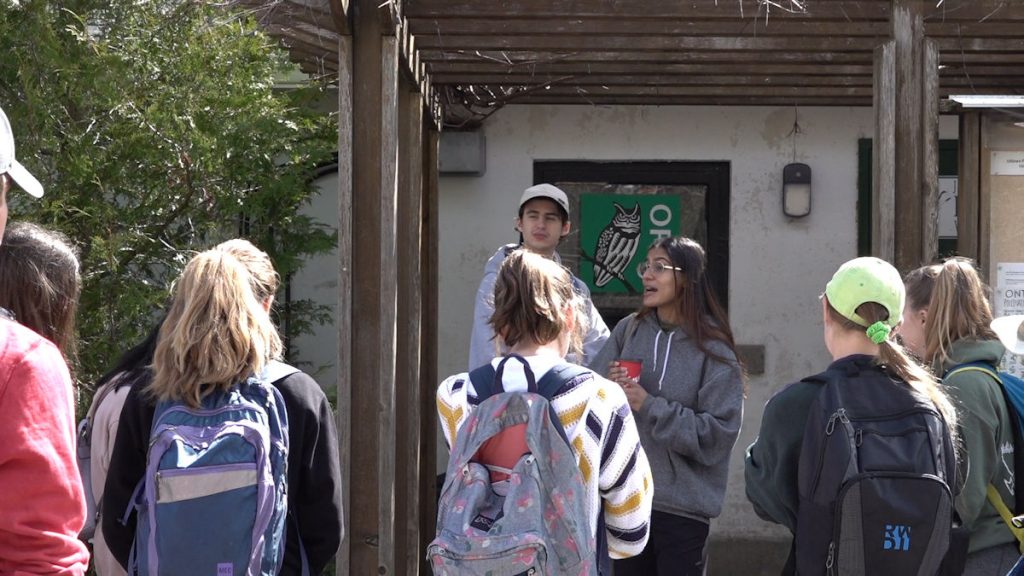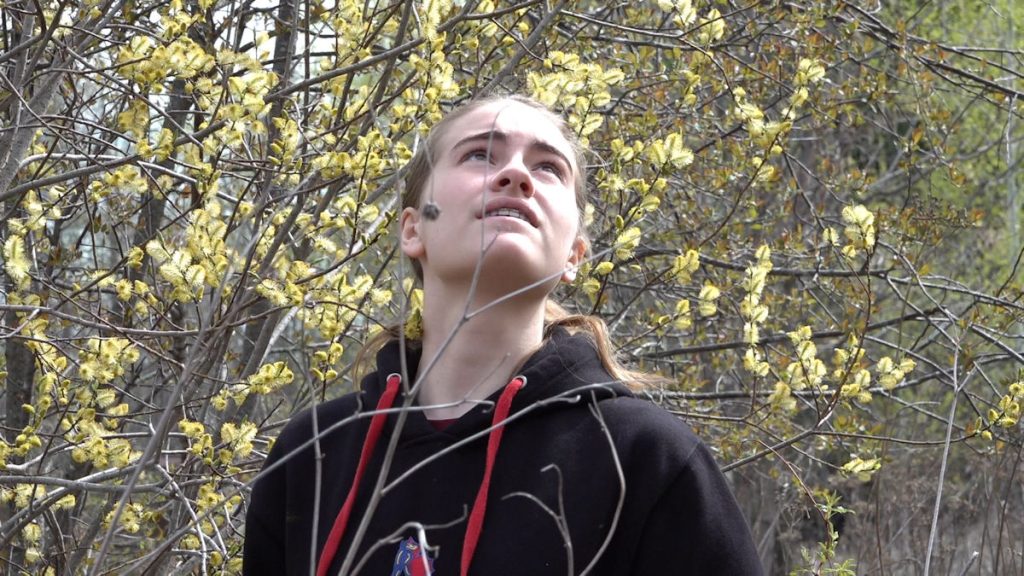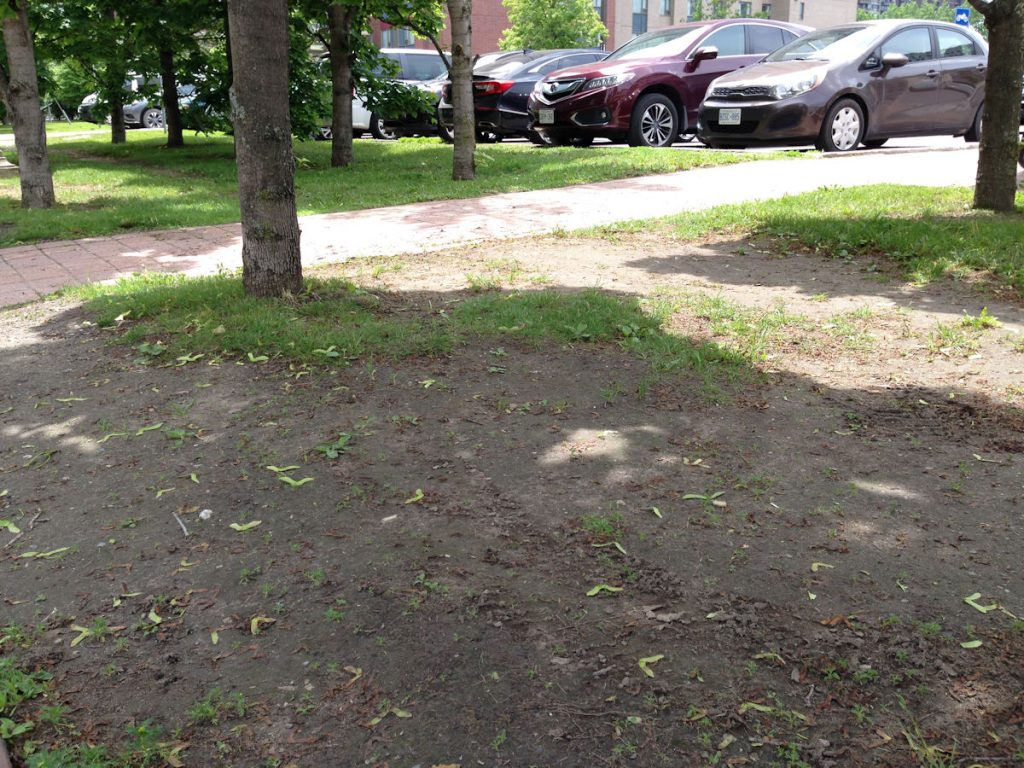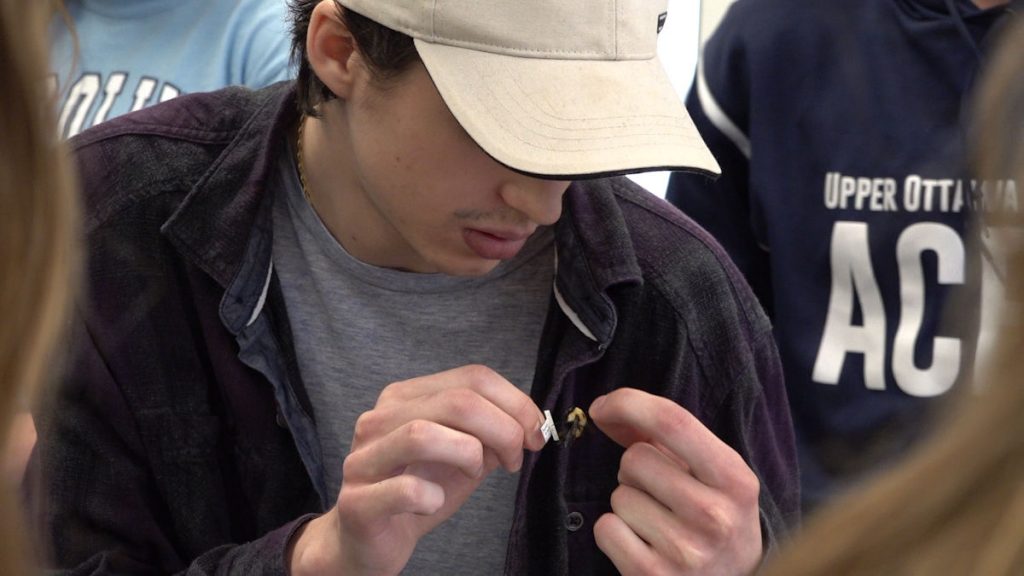by Luca Fiorindi, photos by Edgar Rene Hernandez and Renate Sander-Regier
High school students in this year’s mini-course, “What’s the buzz? Making a difference for wild pollinators,” got to learn about and participate in citizen science. Throughout the week, the group was able to familiarize themselves with the wide diversity of wild pollinators and learn about their ecological importance.

Ottawa U students, Luca Fiorindi and Mira K.K., with mini-course participants at the FWG. Photo by Edgar Rene Hernandez.
Despite the earliness of the season (first week of May 2019), the group got to see a handful of species at work while touring the Fletcher Wildlife Garden (FWG). The most activity was seen around the blooming willow tree, which was attracting many early active Andrenid bees as well as some Bombus species. During this tour, the group saw many different ways of life, from ground-nesting bees on south-facing slopes to butterflies and flower flies in the meadow.

Mini-course participant, Maeve, looking for pollinators on willow tree flowers at the FWG. Photo by Edgar Rene Hernandez.
Having gained an appreciation for these little insects and what makes a good home for them, the group returned to campus to assess the habitat quality on university grounds. The kids pilot tested a habitat survey tool and a pollinator diversity survey. The class broke up into four groups and assessed the campus at four different sites. The data they collected was compiled into short reports detailing the quality of their section of the campus as pollinator habitat. Through these activities, the students gained insight into how the human-built environment hampers important ecosystem functions, such as pollination.

The students found signs of wild bees nesting in the bare soil here on campus at the University of Ottawa. Photo by Renate Sander-Regier.
The work done by this particular group of motivated and passionate students helped to build up the case for wild pollinators on campus. These reports will help to raise awareness for those who plan land use on campus, with the hope that more consideration is given to maintaining or creating natural spaces. It is also our hope that the participants of the mini-course carry the knowledge they gained into their day-to-day lives, sharing what they learned about the ecological importance of pollinators with family and friends.
See also Mira K.K.’s blog post on the mini-course experience: Students meet pollinators.
Luca Fiorindi recently earned his bachelor’s degree in environmental studies with a minor in biology. He is currently working with Jessica Forrest’s pollination ecology lab, where he assists in fieldwork, identification, and pinning. He is looking to continue studying ecology at the graduate level this coming September.
